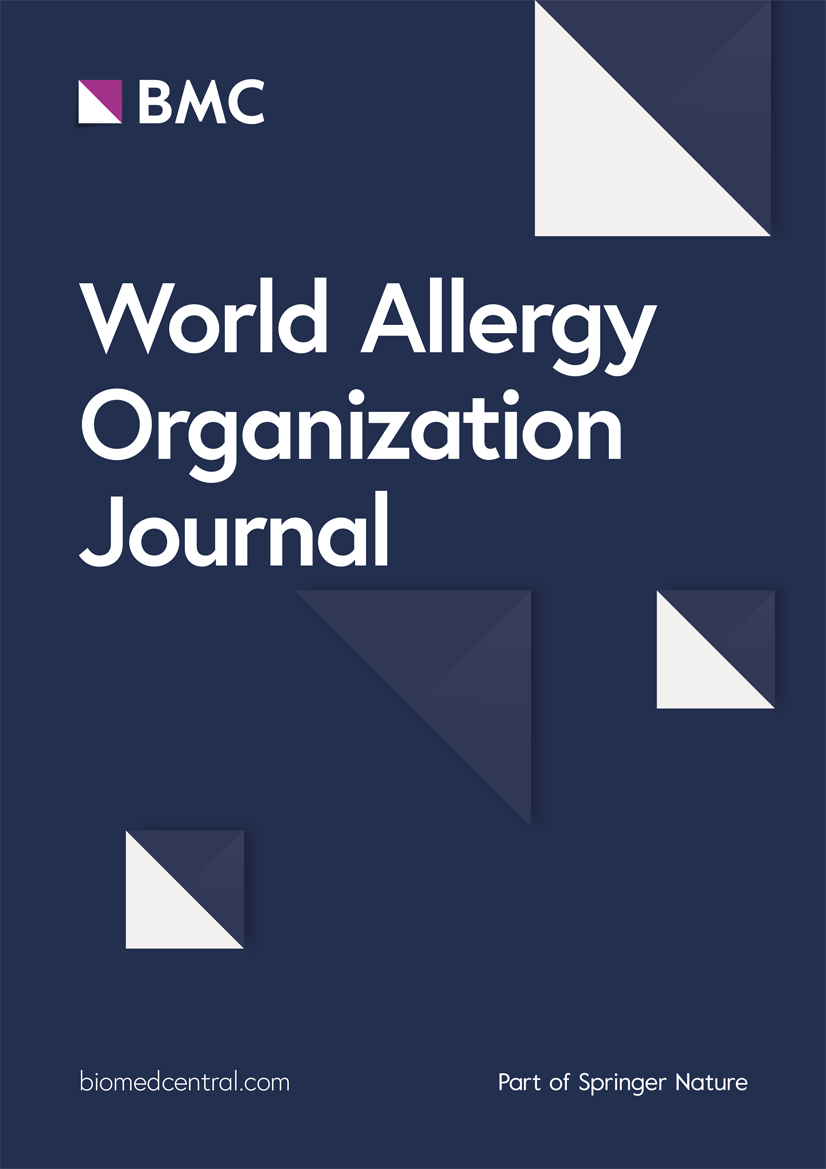Improvement of the therapeutic management of allergic patients in Europe – An expert think tank's position paper on allergen immunotherapy
IF 4.3
2区 医学
Q2 ALLERGY
引用次数: 0
Abstract
Respiratory allergies are a major global health issue due to their high prevalence and burden on patients, societies, and the health care system. In addition to symptom-relieving pharmacotherapy, allergen immunotherapy (AIT) is the only disease-modifying treatment option currently available that has the potential to prevent disease progression and the onset of asthma. The importance of AIT varies greatly from country to country. To discuss the different aspects of AIT, 20 experts from 12 European countries met for the First European Think Tank on Allergen Immunotherapy. The aim of the meeting was to formulate an expert position for improving the clinical care of patients with respiratory allergies in Europe, particularly concerning the use of AIT. The lacking class effect requires a product-specific assessment of AIT products for the most common allergens available in different European countries. Adherence, appropriate prescription, and early initiation — potentially to prevent disease progression — were identified as most important challenges for practical use of AIT. The shared decision-making on either sublingual or subcutaneous AIT may be based on safety and efficacy profiles, patient preferences, and clinical setting. Future challenges with regard to the application of AIT are as follows: to increase awareness for AIT among payers, health care providers, pharmacists, and patients; to better define patients who benefit the most of AIT; to improve the training of general practitioners on AIT as the first point of contact for allergy patients regarding allergy diagnosis and treatment, including AIT; to increase the awareness of AIT as a causal treatment option; to improve the training of primary care pediatricians with regard to AIT to ensure early initiation of AIT in cooperation with allergy specialists; to enhance the guidance of physicians through relevant AIT guidelines; and to provide them with more detailed scientific guidance for selecting the adequate products to achieve optimal benefits for their patients.
改善欧洲过敏患者的治疗管理-一个专家智库关于过敏原免疫治疗的立场文件
由于呼吸道过敏的高患病率和对患者、社会和卫生保健系统的负担,它是一个主要的全球健康问题。除了缓解症状的药物治疗外,过敏原免疫治疗(AIT)是目前唯一可用于预防疾病进展和哮喘发作的疾病改善治疗选择。美国在台协会的重要性因国而异。为了讨论AIT的不同方面,来自12个欧洲国家的20位专家参加了第一届欧洲过敏原免疫治疗智库会议。会议的目的是制定一个专家立场,以改善欧洲呼吸系统过敏患者的临床护理,特别是关于AIT的使用。缺乏等级效应需要针对不同欧洲国家最常见的过敏原对AIT产品进行产品特异性评估。坚持、适当的处方和早期开始(可能预防疾病进展)被确定为实际应用AIT的最重要挑战。舌下或皮下AIT的共同决策可能基于安全性和有效性、患者偏好和临床环境。今后在应用美国在台技术方面面临的挑战如下:提高付款人、医疗保健提供者、药剂师和患者对美国在台技术的认识;更好地确定哪些患者从AIT中获益最多;改善对全科医生的培训,使其成为过敏病人在诊断和治疗过敏方面的第一联络点,包括在过敏资讯方面的培训;提高对AIT作为一种因果治疗方案的认识;改善初级保健儿科医生在AIT方面的培训,以确保与过敏专家合作尽早开展AIT;透过有关的美国在台协会指引,加强对医生的指导;并为他们提供更详细的科学指导,以选择合适的产品,为患者实现最佳效益。
本文章由计算机程序翻译,如有差异,请以英文原文为准。
求助全文
约1分钟内获得全文
求助全文
来源期刊

World Allergy Organization Journal
Immunology and Microbiology-Immunology
CiteScore
9.10
自引率
5.90%
发文量
91
审稿时长
9 weeks
期刊介绍:
The official pubication of the World Allergy Organization, the World Allergy Organization Journal (WAOjournal) publishes original mechanistic, translational, and clinical research on the topics of allergy, asthma, anaphylaxis, and clincial immunology, as well as reviews, guidelines, and position papers that contribute to the improvement of patient care. WAOjournal publishes research on the growth of allergy prevalence within the scope of single countries, country comparisons, and practical global issues and regulations, or threats to the allergy specialty. The Journal invites the submissions of all authors interested in publishing on current global problems in allergy, asthma, anaphylaxis, and immunology. Of particular interest are the immunological consequences of climate change and the subsequent systematic transformations in food habits and their consequences for the allergy/immunology discipline.
 求助内容:
求助内容: 应助结果提醒方式:
应助结果提醒方式:


